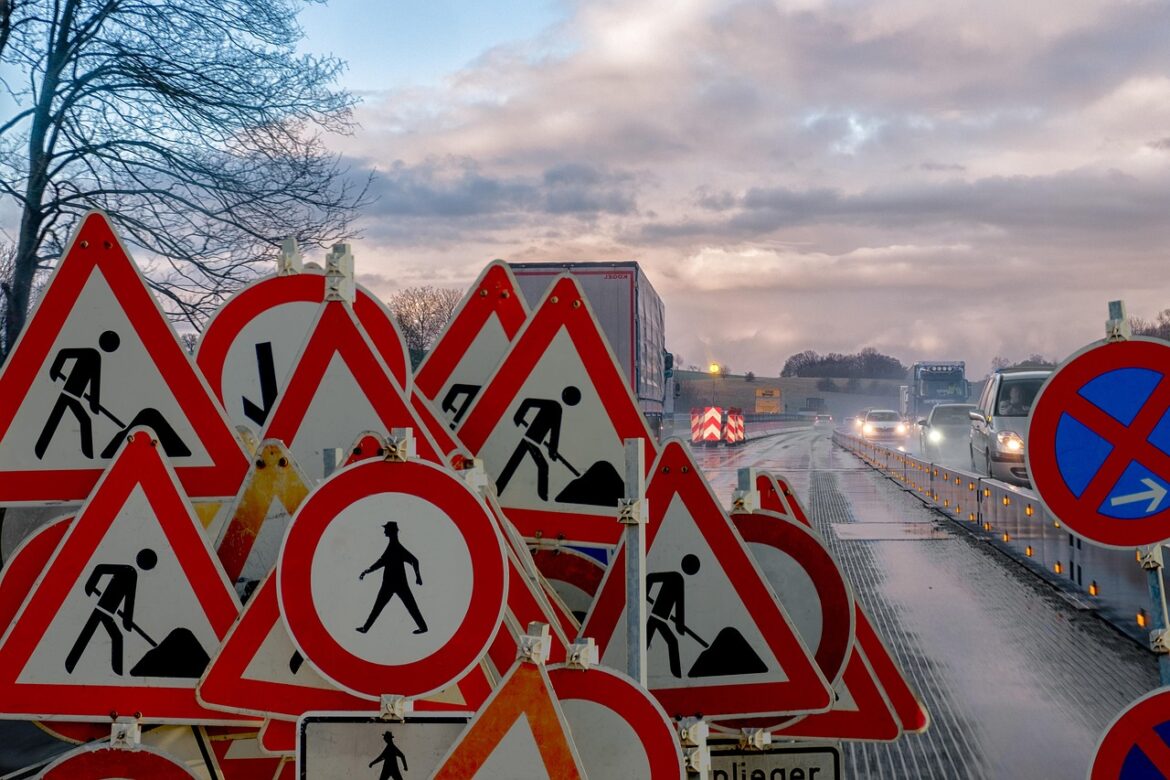The travel industry is a vast and interconnected ecosystem that relies heavily on transportation infrastructure, such as roads, railways, and airports. Among these, roads are the most commonly used mode of travel for many people, from commuters to long-distance tourists. However, when roadworks are undertaken—whether for repairs, upgrades, or new construction—there can be significant ripple effects on the travel industry. In this article, we will explore how roadworks impact travel, tourism, and the economy and the strategies the industry uses to adapt.
Traffic Disruptions and Delays
The most immediate and noticeable impact of roadworks on the travel industry is the disruption to traffic flow. Road construction or maintenance can lead to lane closures, detours, and complete road blockages, causing major delays for private motorists and commercial transportation services. For travelers, this can result in missed flights, trains, and appointments. Long-haul truck drivers who rely on efficient road systems may also face delays that affect their delivery schedules, disrupting supply chains. Many cities rely on the best traffic control company to help manage these disruptions and ensure smooth traffic flow, which design and implement effective detour plans and signal systems to minimize congestion. For the tourism industry, these disruptions can be particularly damaging. Tourists often plan their trips around specific travel times; unexpected delays can lead to frustration. Major tourist destinations near construction zones may experience a decline in visitors who opt for other, more accessible locations. Similarly, guided tours or sightseeing buses that rely on smooth road systems might have to adjust their routes, causing inconveniences for tourists.
Increased Travel Costs
The delays caused by roadworks can result in higher costs for both travelers and businesses. For individuals, longer travel times often translate into higher fuel consumption, especially for those traveling by car. Rental car companies may also face increased operational costs as vehicles are kept longer than expected due to road delays. Moreover, transportation services such as taxis, ride-hailing companies, and buses may need to adjust their pricing structures to account for increased fuel costs or the need to take longer routes to bypass construction zones.
For airlines, roadworks around airports can lead to increased taxi times, which may delay flight schedules or require more fuel. When airports are located near urban centers, major roadworks can affect access to the airport, leading to longer journey times and, in some cases, cancellations. These disruptions could reduce customer satisfaction and make travelers less likely to choose a particular airline or airport in the future.
Tourism Fluctuations
Tourism is one of the sectors most vulnerable to the effects of roadworks. Tourists often travel during peak seasons, and road disruptions can have long-term consequences for the industry. If a major tourist route or highway is closed due to roadworks, tourists may cancel their trips or change destinations. For example, a famous scenic drive, such as California’s Pacific Coast Highway or the Great Ocean Road in Australia, might be disrupted due to ongoing construction. This results in a drop in visitors to surrounding towns and attractions, affecting local economies.
Additionally, travel bloggers, influencers, and online reviews significantly shape travelers’ decisions. If roadworks disrupt the reputation of a popular destination or the convenience of a travel route, potential tourists may opt for more accessible alternatives. In many cases, the inconvenience caused by roadworks may overshadow a destination’s natural beauty or cultural significance, leading to a loss of revenue for the tourism industry.
Impact on Local Businesses and the Economy
Roadworks can have both positive and negative effects on the local economy. On one hand, road construction generates jobs and can improve transportation infrastructure, benefiting local businesses in the long run. Improved roads can reduce travel times, making reaching hotels, restaurants, and attractions easier for tourists. In the short term, however, local businesses that rely on road access may suffer from reduced foot traffic, especially if roads are closed or detours are difficult to navigate.
For example, businesses in remote areas or tourist hotspots may decline sales as construction projects deter visitors. Similarly, transportation services such as buses, shuttles, or private car services might be temporarily out of service due to roadworks, making it more difficult for tourists to get around. In cases where roadwork is prolonged, businesses may need to lower their prices to attract customers or rely on promotions to offset the loss of business.
Mitigating the Impact of Roadworks
Despite the challenges posed by roadworks, the travel and tourism industries are resilient and adaptable. Many companies and government agencies take steps to mitigate the disruptions caused by road construction. For instance, roadworks are often scheduled during off-peak seasons or outside of regular travel times, such as at night or on weekends, to minimize the effect on tourists. Additionally, real-time traffic updates and detour maps are often made available to help travelers plan their routes and avoid major construction zones.
Transportation companies may adjust their schedules to accommodate delays, ensuring passengers can still reach their destinations on time. This might include adding extra buses or trains to help alleviate congestion during peak travel times or offering alternative routes that bypass construction areas. Moreover, some tourist attractions offer discounts or additional services to make up for the inconvenience caused by nearby roadworks.
In conclusion, roadworks can profoundly impact the travel industry, disrupting traffic flow and increasing travel costs while influencing tourism patterns and local economies. While the short-term effects can be disruptive, road construction projects are often necessary for long-term improvements to transportation infrastructure. By adopting proactive strategies, such as scheduling roadworks during off-peak times and offering alternative routes, the travel and tourism industries can minimize the negative effects of roadworks and continue to thrive.

Leave a Reply